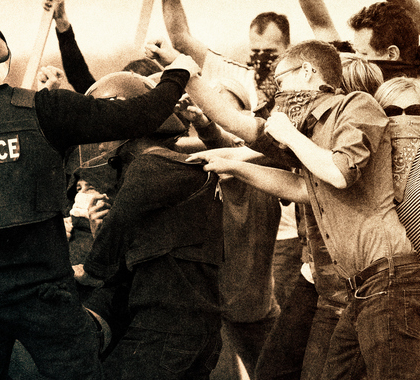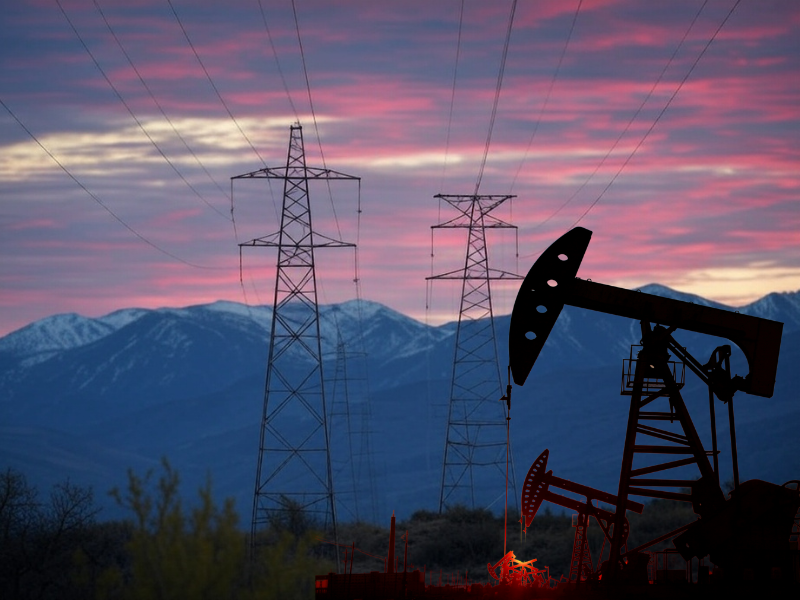In a sign of lawmakers’ growing concern about the threat to public safety posed by anti-fossil-fuel protesters, a new law in Oklahoma imposes significant penalties, including fines and imprisonment, on people and organizations involved in trespassing and other unlawful acts against oil and gas pipelines and related energy infrastructure.
Oklahoma Gov. Mary Fallin (R) signed House Bill 1123 into law in the wake of well-organized but ultimately futile protests aimed at halting construction of the Dakota Access pipeline in North Dakota. Those protests, which dragged on for months, involved occasional violence and vandalism, resulting in substantial property damage.
Lawmakers in Oklahoma acted with a sense of urgency to deal with similar protests already underway against the $900 million Diamond Pipeline, which, upon completion later in 2017, will transport up to 200,000 barrels of light, sweet crude oil from Cushing, Oklahoma 440 miles to a Valero refinery in Memphis, Tennessee.
Stiff Penalties
The new law imposes stiff penalties on those convicted of trespassing at “critical infrastructure facilities,” including pipelines, ports, and other transportation facilities, chemical plants, liquid natural gas terminals, power plants, railways, and refineries.
At the misdemeanor level, people who willfully trespass onto critical infrastructure face fines of $1,000 and up to six months in jail. Those who willfully trespass with the intent to damage, destroy, vandalize, deface, tamper with equipment, or impede or inhibit the operations of a facility but fail to damage equipment or impede a facility’s operations face fines of no less than $10,000 and up to one year in jail.
Persons convicted of damaging, destroying, vandalizing, defacing, or tampering with equipment or critical infrastructure face a $100,000 fine and imprisonment of up to 10 years. The law took effect on May 5, immediately upon Fallin’s signing.
Conspiring Organizations
In addition to punishing individual protesters who violate the new law, organizations, such as environmental groups, found to be in league with lawbreakers could face penalties as well.
Section C of HB 1123 specifies, “If an organization is found to be a conspirator with persons who are found to have committed any of the crimes described in subsection A or B of this section, the conspiring organization shall be punished by a fine that is ten times the amount of said fine authorized by the appropriate provision of this section.”
On May 15, Fallin signed a second bill, House Bill 2128, making trespassers and those who help them liable for the economic damages they make to real or personal property. The new law also extends civil liability to a “person or entity that compensates, provides consideration, or remunerates a person for trespassing.”
Preventing Damage, Injury
Bette Grande, a former North Dakota state representative and a research fellow at The Heartland Institute, which publishes Environment & Climate News, says North Dakota, the scene of the destructive Dakota Access anti-pipeline protests, recently enacted legislation designed to curb trespassing on private property.
“The legislation North Dakota recently passed will hopefully deter protests in the future by making it harder for protesters to conceal their identity while engaged in criminal activity related to the protests,” Grande said. “This does not bring back the lost livestock or repair the damage to the land and personal property that already occurred, but having these laws in place should help law enforcement do their job of protecting innocent citizens against such destructive actions in the future.”
Craig Rucker, executive director of the Committee for a Constructive Tomorrow, says such legislation is about more than protecting pipelines and pumps. It’s also about protecting workers.
“This is not just about protecting critical energy infrastructure, as important as that is,” said Rucker. “This is also about protecting workers at pipeline construction sites and others involved in bringing electricity and transportation fuel to consumers.
“A line was crossed at the Dakota Access Pipeline site, and if measures are not taken to discourage, through the threat of stiff fines and imprisonment, sooner or later people are going to be injured or worse,” Rucker said.
Bonner R. Cohen, Ph.D. ([email protected]) is a senior fellow at the National Center for Public Policy Research.





